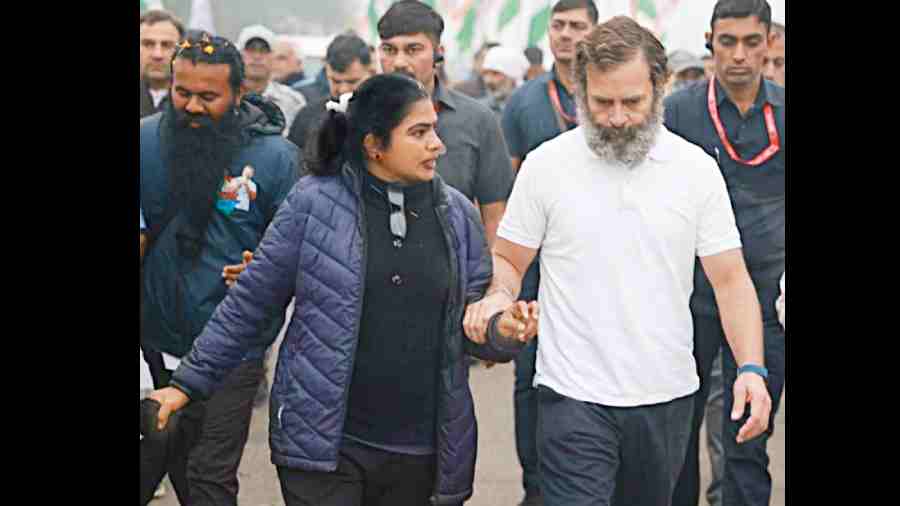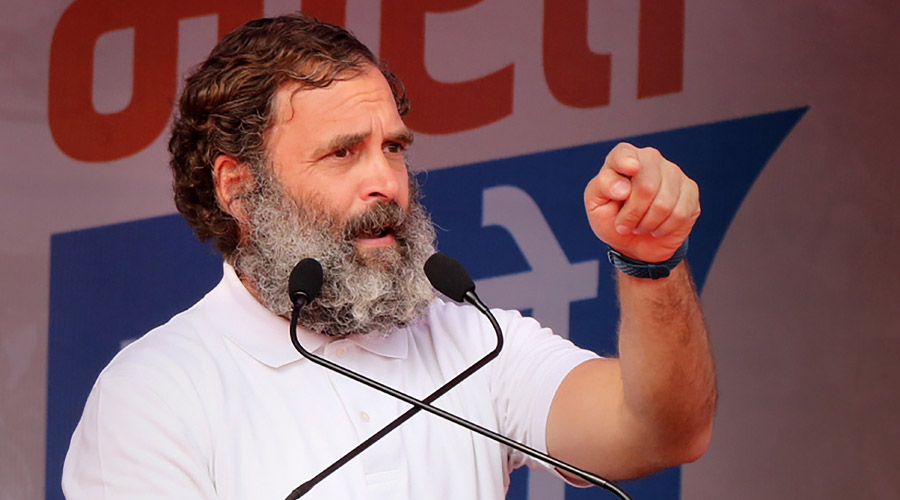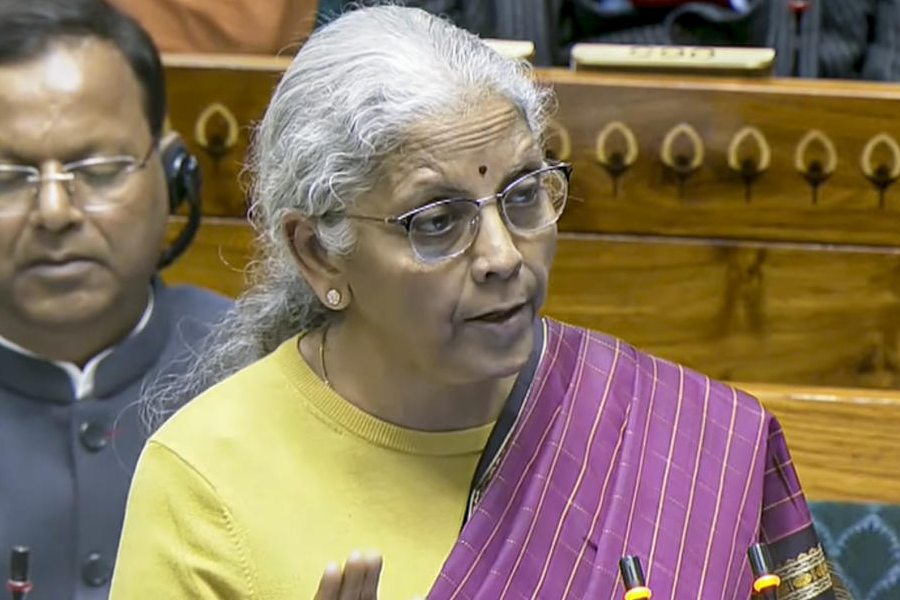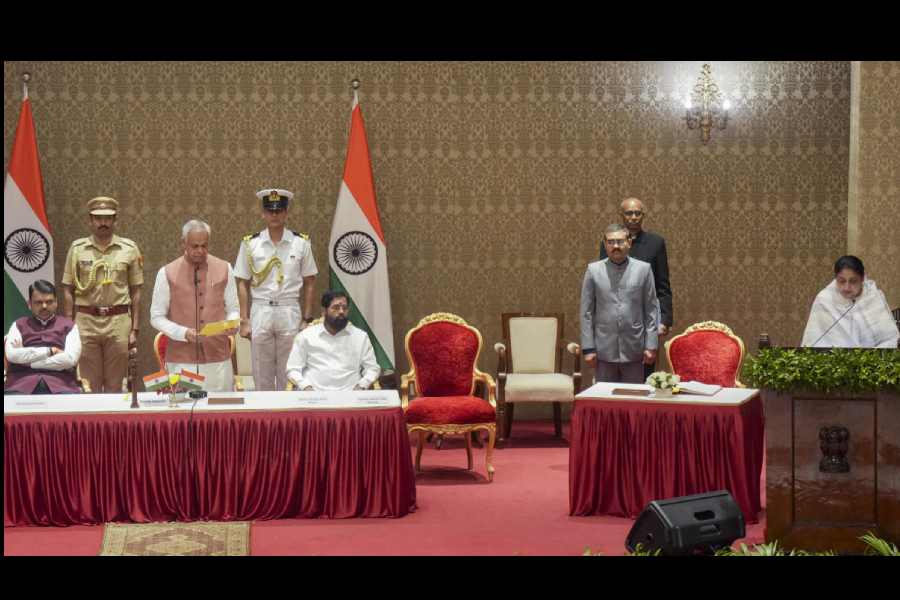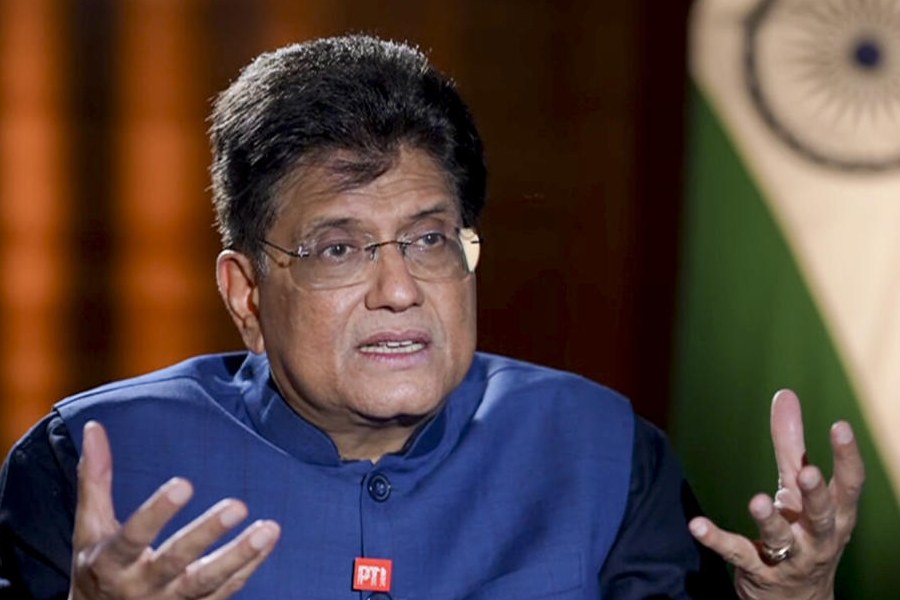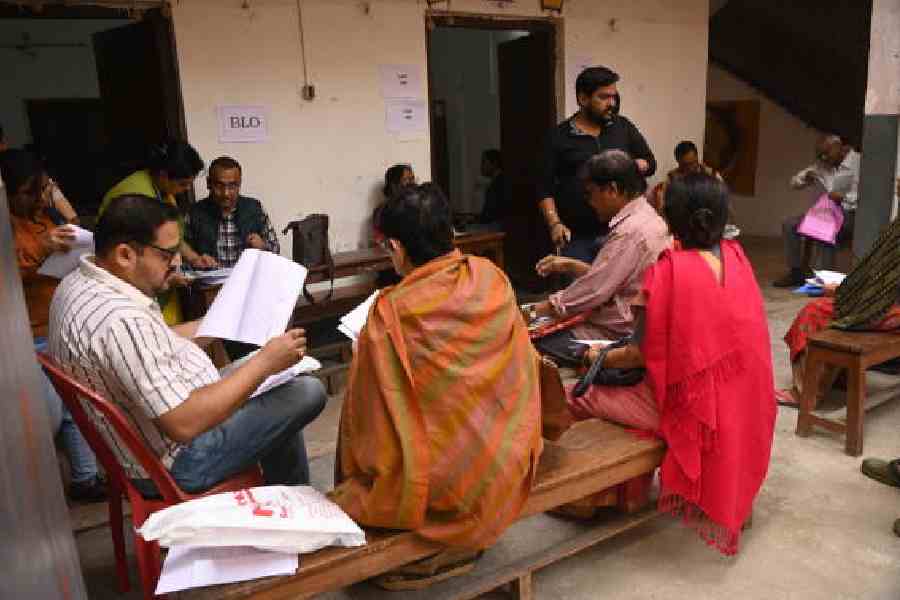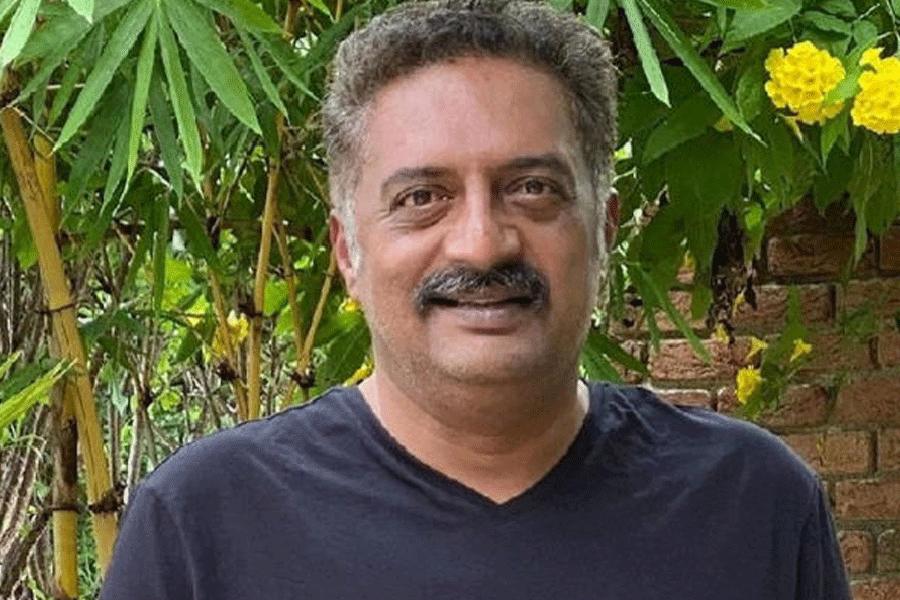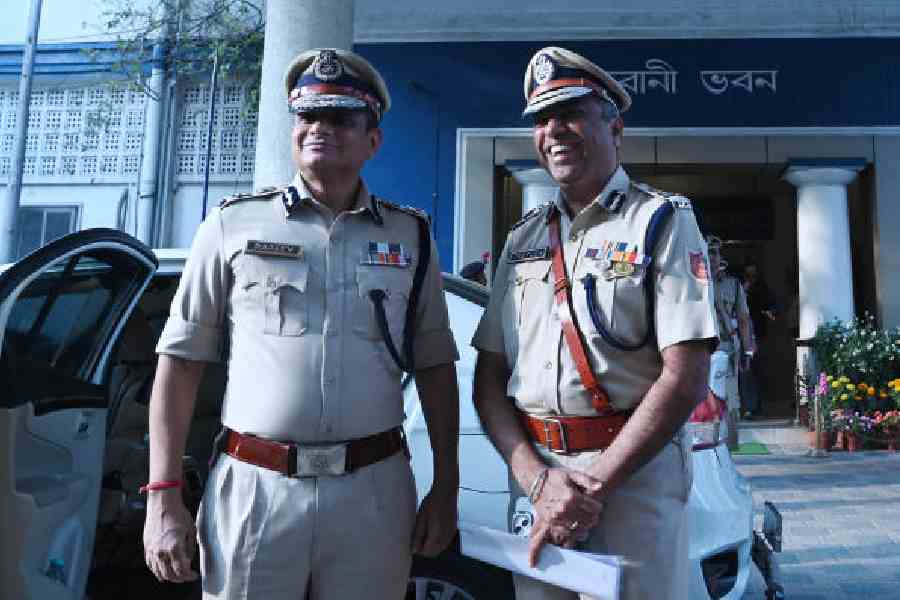Sheeba Ramachandran and Fathima Ibrahim of Kerala had read about the freedom struggle in history books. Now, they believe they have taken part in the “second freedom struggle to regain our secular-democratic principles that have eroded a lot since the BJP came to power”.
The two Mahila Congress leaders spent the past five months away from their families, walking in the Bharat Jodo Yatra with Rahul Gandhi from Kanyakumari to Kashmir, braving physical pain and the agony of separation from their loved ones. It is a decision they do not regret as both see the endeavour as a penance for the party and an effort towards the restoration of freedom and secular principles.
State Mahila Congress secretary Sheeba, 47, and Palakkad district Mahila Congress vice-president Fathima, 46, were the only women in the team of nine from the Kerala Congress that walked the length of the Yatra that began at Kanyakumari on September 7.
The two leaders told The Telegraph that the Yatra was an eye-opener in terms of understanding the diversity of the nation and the oneness of its people, although communal harmony has taken a beating since the BJP-led NDA came to power in 2014.
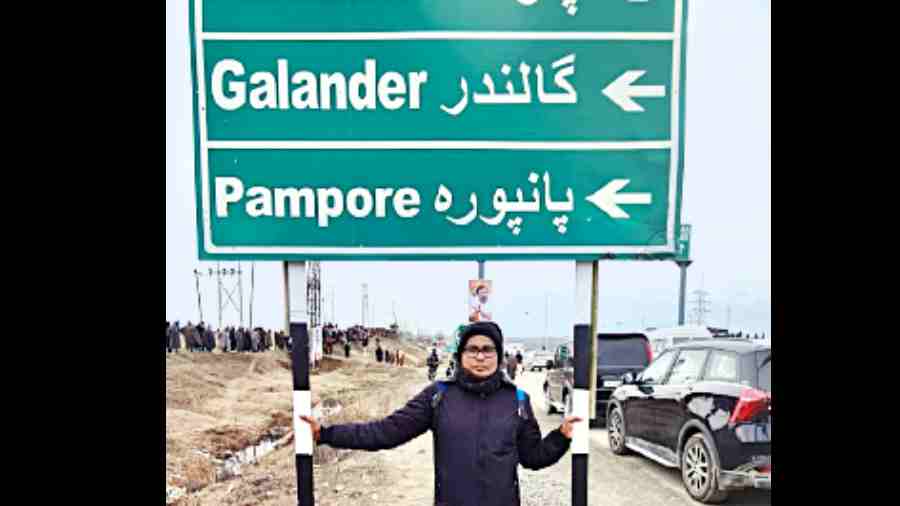
Palakkad Mahila Congress vice-president Fathima Ibrahim in Jammu and Kashmir Sourced by The Telegraph
“The main reason why I embarked on this trip was because we have learned about the freedom struggle only through history books. I see this Yatra as the second freedom struggle to regain our secular-democratic principles that have eroded a lot since the BJP came to power,” Fathima said.
Fathima, who returned home on Saturday after the 136- day walkathon that covered 4,080km instead of the initially planned 3,570km, added: “I am 46 years old and if I don’t do my bit at a time when our personal freedom and secularism are under assault, there is no doubt that my own children will one day ask me why I didn’t stand up when I could.”
Her husband Ibrahim and three children, two of them girls, backed her to the hilt to complete the mission. “At one point after two weeks of walking my body was in pain. But when I called my husband and told him about my condition, he gave me the courage and confidence to continue walking,” she said.
Once selected by the party’s central committee that screened the 119 walkers who accompanied Rahul, Fathima consulted her doctor about her back injury suffered in an accident in 1996. “Although the doctor advised me against undertaking the Yatra, I went ahead by asking him for emergency medicines that I carried with me. But I must say my once-injured back held all the way.”
While Fathima lost at least 8kg, Sheeba lost 10kg during the arduous mission undertaken by Rahul to heal the nation of communal divisiveness.
“The diversity of languages, people, cultures, cuisine, and the way of life in each state helped me open my eyes to the beautiful mosaic that is India. Rahulji’s own words ‘Nafrat ki bazaar mein mohabbat ka dukaan khol rahen hain (We are opening shops selling love in the market of hatred)’ became the elixir that helped Yatris like me forget the physical pain and exhaustion,” Fathima said.
Both women endured moments of sadness when they missed being with their children and families. While Fathima faced a dilemma when her youngest daughter accidentally scalded her leg with hot water, Sheeba had a worrying call from her teenage daughter.
“My daughter called me every day once she got back from school. One day when I was in the Karnataka leg, she called and repeatedly asked me why I left her alone (although her husband was home). Fear overcame me and spine-chilling thoughts blitzed across my mind since my hometown Perumbavoor (in Ernakulam) is very unsafe due to the large presence of migrant workers and the Jisha case,” Sheeba recalled.
Jisha, a Dalit law student, was raped and murdered at her home in Perumbavoor in April 2016. The case was compared to the 2012 Delhi bus gang rape and murder. A migrant labourer was arrested and sentenced to death in connection with the brutality on Jisha.
“I was shaking with fear for a few minutes until she said she wanted to get sanitary napkins and couldn’t ask her father to buy them. Those few minutes of trauma gave me a fever that lasted a week,” Sheeba said, recalling one of the most difficult moments during the Yatra.
After walking for several days, Sheeba’s feet developed painful blisters. “The doctor accompanying us warned me that I might even lose my toes if I didn’t take rest. But I somehow managed to walk after taking antibiotics to heal the wounds. All these experiences certainly made me a much stronger woman,” said Sheeba, who had worked as a schoolteacher in Saudi Arabia for 15 years before returning to India about six years ago.
Sheeba was part of the Kerala Students’ Union during her school and college days. “I too had the complete support of my husband (Ramachandran), although my son (who works as an engineer at the Cochin Refinery) was worried about my health.”
“But every challenge had to capitulate before my determination to make myself count in this unprecedented endeavour in our history, which I am proud to be part of,” she said.
Since returning home, both women have had a long list of felicitations and public meetings to attend. “I have been invited to meetings even in other districts like Thrissur and Idukki,” exulted Fathima.
The lessons she learned during the Yatra have prepared Sheeba for bigger assignments even in other states. “I am now ready to work in any state for the sake of my party and country,” she said, asked if she would be assigned to poll-bound states.

